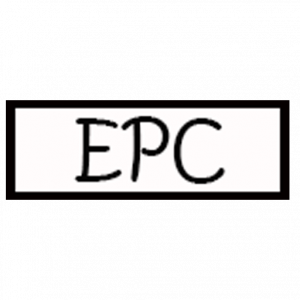Since the spread of the internet in the early nineties, website development has undergone a profound change. Once merely a collection of plain text fields, today’s web pages feature detailed presentations of multimedia content. Websites have evolved from being primarily platforms for information to also serving as entertainment mediums. Internet users now demand interactive web pages with beautiful designs that allow intuitive usage. To meet this demand, web developers design dynamic websites using various tools, creating custom websites tailored to users’ needs. The fundamental requirement for this is professional web hosting, which provides necessary resources and supports current web standards.
In this article, we will discuss some topics to simplify the understanding of website design, programming, and development processes, including:
- Technical Basics of Website Development
- Essential Tools for Web Programming
- Website Creation
- Web Design
- Building Specialized Websites from Scratch
Technical Basics of Website Development: The foundation of a website lies in the space provided by a domain, offered by specialized internet service providers or hosts. Hosting packages typically include various services alongside the required space, such as RAM, dedicated domain, databases, and development tools. Hosting packages generally do not specify the physical devices hosting the resources. However, alternative hosting models like dedicated web servers, which are leased in data centers as independent hardware components, provide more insight into the hosting infrastructure.
Domain: Each project on the World Wide Web can be accessed using a unique name. These domain names form part of the basic elements of a hosting package. Domains strictly follow the hierarchical structure of the Domain Name System (DNS) and consist of the top-level domain that defines the space (e.g., .com), a freely chosen domain name (second-level domain), and optional subdomains. Domains are registered through registrars, who send requests to the relevant administrative bodies. When choosing a domain, there are short and concise formats and common top-level domains to consider.
Web Space (Hosting): Every web page consists of data provided to display the pages on the internet. Therefore, hosting packages always include storage space for HTML documents, style sheets, images, videos, or databases. Data is typically uploaded via the File Transfer Protocol (FTP) and clients like FileZilla or WinSCP. Hence, it’s essential to choose a hosting package that allows for extending web space as needed.
Database: For dynamically generating web pages on-demand, web developers predominantly use relational databases. With this type of database management, information is organized into records in tables and linked to other records via identifiers. Data structures are typically opened and processed using Structured Query Language (SQL). MySQL, an open-source program, is one of the most popular relational database management systems worldwide for such dynamic websites.
Internet Database: Websites are usually created through shared hosting for beginners. With this hosting model, many clients share a common set of server resources. For large professional projects, providers also offer various types of web servers, where hardware components are exclusively customized for clients. For large companies, alongside rented alternatives, purchasing server technology is sometimes recommended.
Essential Tools for Web Programming: While the foundation of a website, in the form of hosting packages or servers, is present, users have many possibilities to create their own web pages. Options range from intuitive web programming with limited design options to flexible content management systems (CMS) to self-written source code programming instructions. While ready-made websites follow the WYSIWYG (“what you see is what you get”) principle and mainly target beginners, using a CMS requires some basic knowledge.
When programming websites from scratch, web developers ensure maximum freedom. However, this requires knowledge of basic programming languages like (insert programming languages).
- Python
- Java
- JavaScript
- C#
- C++
- Ruby
- Swift
- Kotlin
- PHP
- TypeScript
- Go (Golang)
- Scala
- Rust
- Perl
- Objective-C
- SQL
- HTML/CSS (They are not programming languages in the strict sense but are used for interface development and coordination)
- Shell Scripting ( Bash)
- MATLAB
- R
Python: An easy-to-learn and powerful programming language used in web development, data science, artificial intelligence, scientific applications, automation, games, and more. Java: A popular programming language used in web development, smartphone applications (Android), games, and medium to large-scale computer programs. JavaScript: A programming language mainly used in web development, user interaction with web pages, mobile applications, and desktop applications. C#: A programming language primarily used in Windows application development, game development using Unity engine, and web applications using .NET. C++: A versatile programming language used in system development, games, embedded software, tools, and more. Ruby: A dynamic programming language used in web development, thanks to the Ruby on Rails framework. Swift: A programming language used in iOS and macOS application development, known for its speed and security. Kotlin: A programming language mainly used for Android application development, known for its readability, writability, and safety. PHP: A programming language primarily used in web development, especially in building dynamic internet sites. TypeScript: A superset of JavaScript that provides a type system and other features for developing large web applications. Go (Golang): A programming language developed by Google and widely used in server applications and distributed systems. Scala: A programming language based on Java that aims to integrate functional and object-oriented programming. Rust: A programming language developed by Mozilla that aims to provide high performance and memory safety. Perl: A programming language commonly used in text processing, data analysis, and system tools. Objective-C: A programming language primarily used in iOS and macOS application development before the emergence of Swift. SQL: A query language used to interact with databases. HTML/CSS: Not programming languages strictly speaking, but they are used to develop and style web pages. Shell Scripting (Bash): A programming language used to write scripts and operational commands for the operating system. MATLAB: A programming language commonly used in engineering and natural sciences for digital computing and signal processing. R: A programming language primarily used in statistical analysis, data science, and scientific research.

